
Discover the Mystical Charm of Palenque
Palenque, nestled in the lush jungles of Chiapas, Mexico, is a treasure trove of ancient Mayan history and natural beauty. This remarkable neighbourhood is home to the Palenque Archaeological Zone, a UNESCO World Heritage site that boasts some of the most exquisite Mayan ruins in the world. As you wander through the well-preserved temples and palaces, you'll be transported back in time to an era of architectural brilliance and cultural richness. Beyond the historical allure, Palenque offers a unique blend of natural wonders. The surrounding rainforests are teeming with wildlife, from howler monkeys to exotic birds. Nature enthusiasts will find themselves captivated by the stunning waterfalls, such as Misol-Ha and Agua Azul, which provide perfect spots for a refreshing dip and breathtaking photos. The vibrant town of Palenque itself is a delightful mix of traditional Mexican charm and modern amenities. Stroll through its colorful streets, indulge in local cuisine at cozy eateries, and explore the bustling markets where you can find handmade crafts and souvenirs. Whether you are a history buff, nature lover, or simply in search of a serene escape, Palenque promises an unforgettable experience.
Local tips in Palenque
- Visit the Palenque Archaeological Zone early in the morning to avoid crowds and enjoy cooler temperatures.
- Wear comfortable walking shoes and bring water, as exploring the ruins involves a fair amount of walking.
- Hire a local guide to gain deeper insights into the history and significance of the Mayan sites.
- Don't miss the nearby waterfalls Misol-Ha and Agua Azul for a refreshing break from the heat.
- Try the local dish 'Tamal Chiapaneco' for an authentic taste of Chiapas cuisine.
Discover the Mystical Charm of Palenque
Palenque, nestled in the lush jungles of Chiapas, Mexico, is a treasure trove of ancient Mayan history and natural beauty. This remarkable neighbourhood is home to the Palenque Archaeological Zone, a UNESCO World Heritage site that boasts some of the most exquisite Mayan ruins in the world. As you wander through the well-preserved temples and palaces, you'll be transported back in time to an era of architectural brilliance and cultural richness. Beyond the historical allure, Palenque offers a unique blend of natural wonders. The surrounding rainforests are teeming with wildlife, from howler monkeys to exotic birds. Nature enthusiasts will find themselves captivated by the stunning waterfalls, such as Misol-Ha and Agua Azul, which provide perfect spots for a refreshing dip and breathtaking photos. The vibrant town of Palenque itself is a delightful mix of traditional Mexican charm and modern amenities. Stroll through its colorful streets, indulge in local cuisine at cozy eateries, and explore the bustling markets where you can find handmade crafts and souvenirs. Whether you are a history buff, nature lover, or simply in search of a serene escape, Palenque promises an unforgettable experience.
Iconic landmarks you can’t miss
Zona Arqueológica Palenque
Explore the ancient Mayan ruins of Zona Arqueológica Palenque, a UNESCO World Heritage site rich in history and natural beauty.
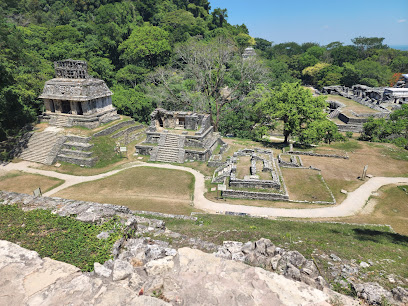
Aluxes Ecopark
Explore the vibrant ecosystems and rich biodiversity of Aluxes Ecopark in Chiapas, a must-visit destination for nature lovers and eco-tourists.
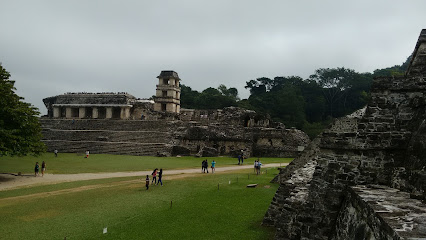
Minivans to the waterfalls Roberto Barrios
Experience the breathtaking waterfalls of Roberto Barrios, a natural paradise in Chiapas, Mexico, perfect for nature lovers and adventure seekers.
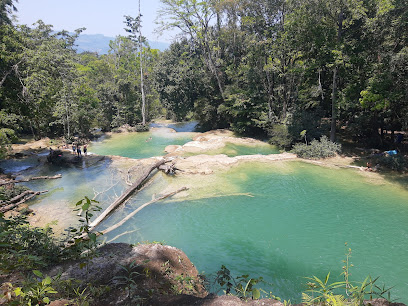
palenque chiapas
Explore the mystical ruins of Palenque, a UNESCO World Heritage Site, and uncover the rich history of the ancient Mayan civilization amidst stunning jungle landscapes.
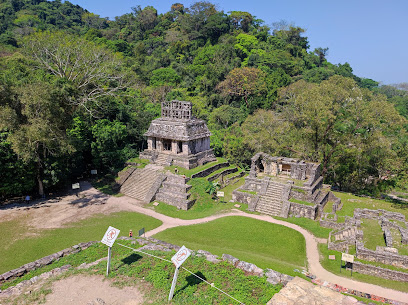
The Palace
Discover the ancient grandeur of The Palace in Palenque, a historic landmark nestled in the lush jungles of Chiapas, Mexico, rich with Mayan heritage.
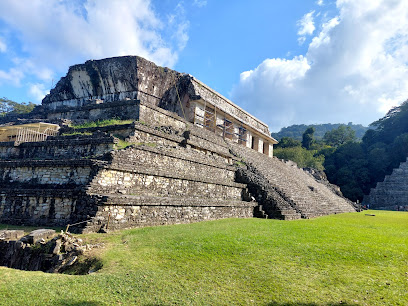
PALENQUE, CHIAPAS, MEXICO
Explore the breathtaking Mayan ruins of Palenque, Chiapas, a UNESCO World Heritage site filled with stunning architecture and rich history.
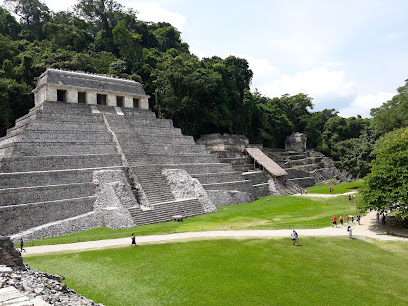
Palenque's Sign
Explore Palenque's Sign: a captivating museum revealing the ancient Maya civilization's treasures amidst the lush jungles of Chiapas.
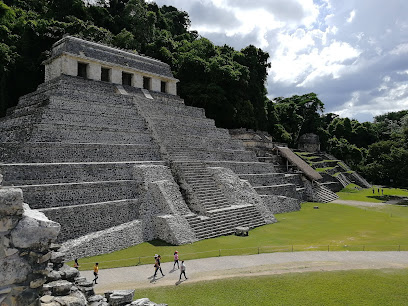
Temple of the Sun
Explore the Temple of the Sun in Palenque, a breathtaking Mayan archaeological site showcasing stunning architecture and rich cultural heritage.
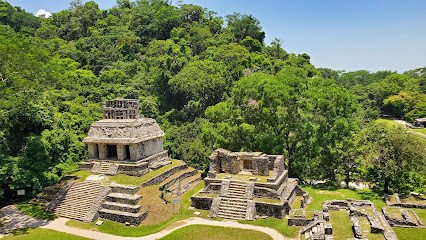
Temple of the Cross
Explore the Temple of the Cross in Chiapas, Mexico—a stunning Mayan ruin rich in history and surrounded by breathtaking natural beauty.
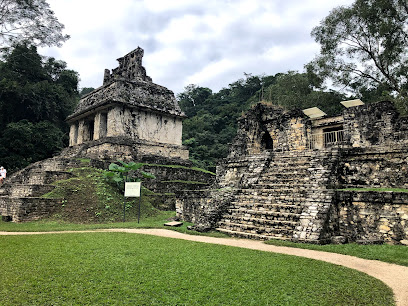
Temple of the Red Queen
Explore the Temple of the Red Queen in Palenque, Chiapas—a stunning historical landmark steeped in Maya history and surrounded by lush jungles.
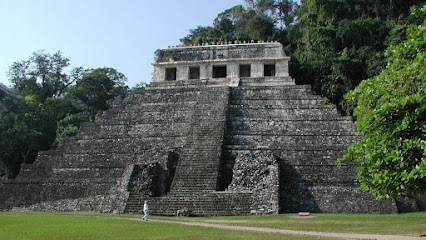
Palenque
Explore Palenque, a stunning archaeological wonder in Chiapas, Mexico, where ancient Maya civilization and lush jungles meet.
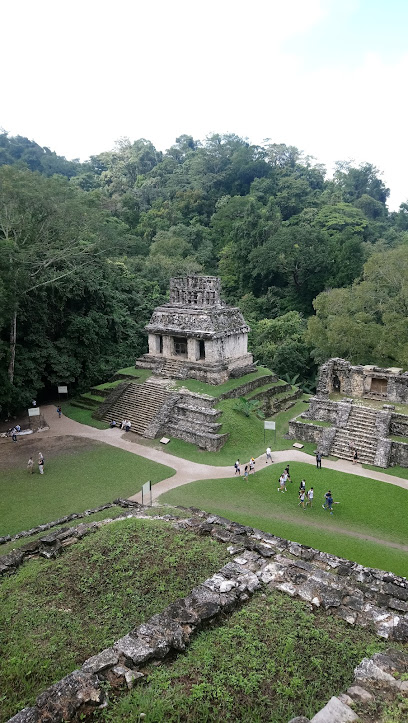
Letras Palenque
Explore the ancient Mayan ruins of Letras Palenque in Chiapas, Mexico, and immerse yourself in the rich history and stunning natural beauty of this archaeological site.
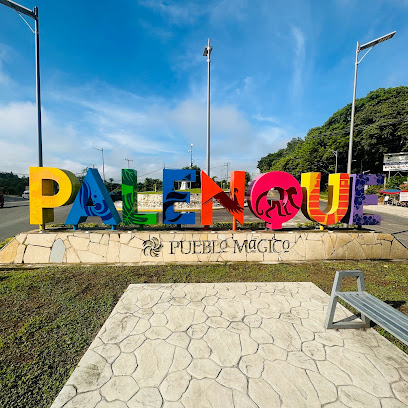
Palenque National Park
Discover the breathtaking ruins and lush landscapes of Palenque National Park, where history and nature converge in Chiapas, Mexico.
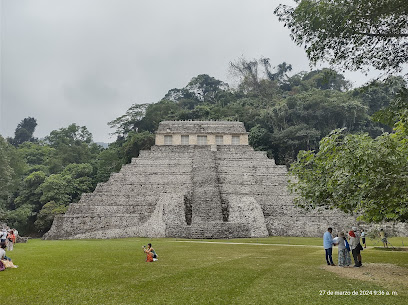
Letras Turisticas Palenque
Explore the artistic soul of Chiapas at Letras Turisticas Palenque, where culture, history, and creativity come together in a captivating museum experience.
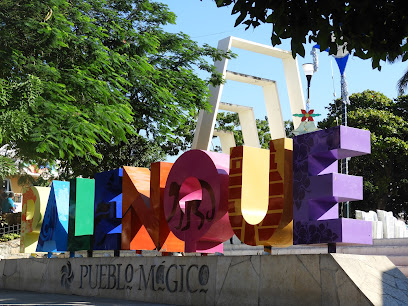
Unmissable attractions to see
Zona Arqueológica Palenque
Explore the breathtaking ruins of Zona Arqueológica Palenque, a UNESCO World Heritage Site rich in Maya history and surrounded by stunning nature.
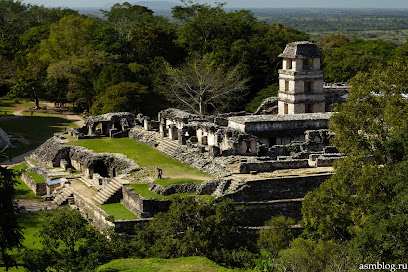
Parque Central
Discover the serene charm of Parque Central, a lush park in Palenque, Chiapas, perfect for relaxation and cultural exploration.
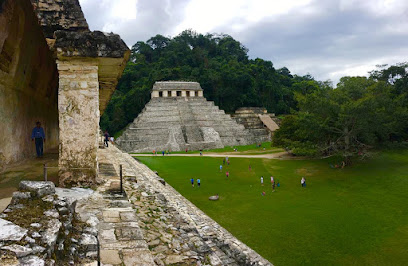
Aluxes Ecopark
Discover the beauty of nature at Aluxes Ecopark, an ecological haven in Palenque, Chiapas, where wildlife thrives and conservation comes alive.
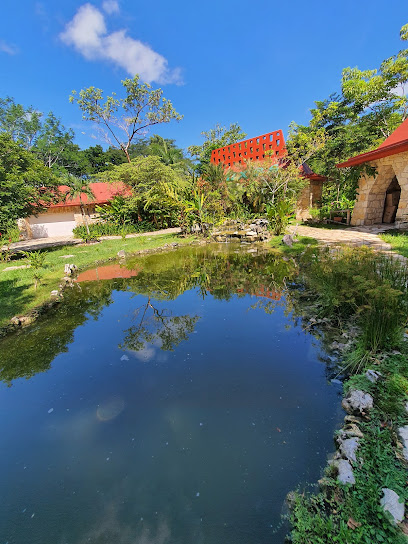
Cabeza Maya
Discover the ancient wonders of Cabeza Maya in Chiapas, where history and nature intertwine for an unforgettable travel experience.
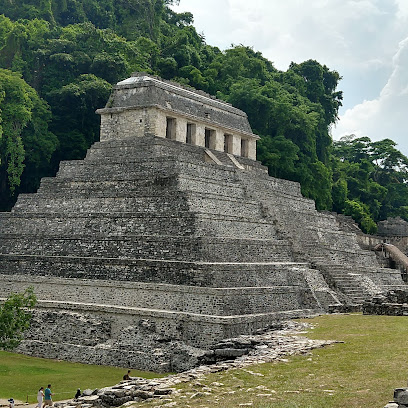
Temple of the Inscriptions
Explore the Temple of the Inscriptions in Palenque, a UNESCO World Heritage Site that showcases the architectural brilliance of the ancient Maya civilization.
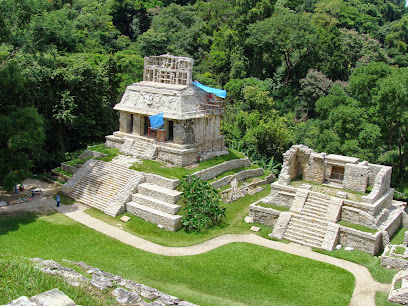
Minivans to the waterfalls Roberto Barrios
Explore the stunning Roberto Barrios Waterfalls in Chiapas, a serene paradise with turquoise pools and breathtaking views, perfect for nature lovers and adventurers.
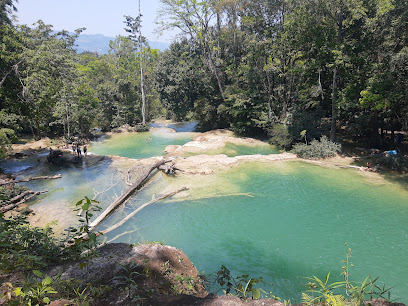
Sombrillas Waterfalls
Explore the stunning Sombrillas Waterfalls in Chiapas, a breathtaking natural wonder perfect for adventurers and nature lovers alike.
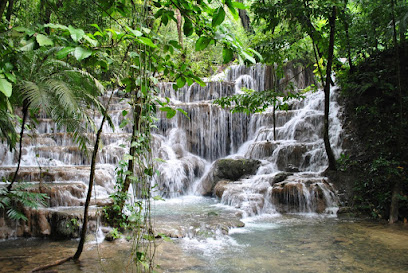
palenque chiapas
Discover the ancient Mayan city of Palenque, Chiapas, a UNESCO World Heritage site filled with rich history, breathtaking architecture, and lush jungle surroundings.
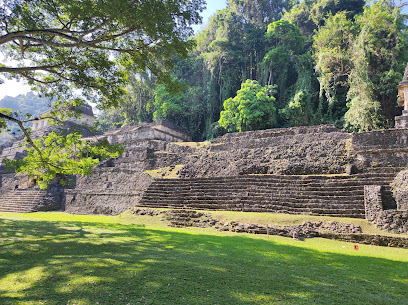
The Palace
Explore the majestic ruins of The Palace in Palenque, a UNESCO World Heritage site showcasing the grandeur of ancient Maya civilization.
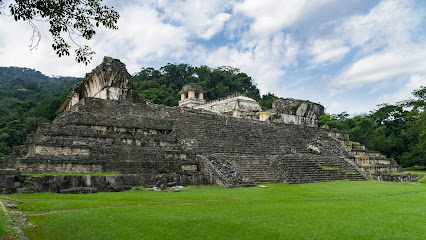
Palenque's Sign
Explore the ancient ruins of Palenque's Sign, a UNESCO World Heritage Site in the heart of Chiapas, rich in Mayan history and surrounded by lush jungles.
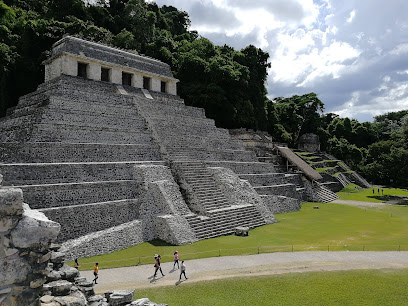
Palenque
Explore the enchanting ruins of Palenque, a UNESCO World Heritage Site showcasing the grandeur of the ancient Mayan civilization amid lush jungles.
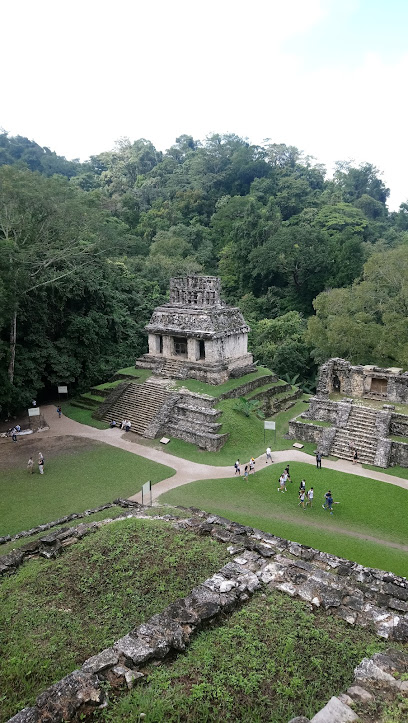
Letras Palenque
Discover the ancient marvels of Letras Palenque, a UNESCO World Heritage site showcasing the splendor of the Maya civilization in Chiapas, Mexico.
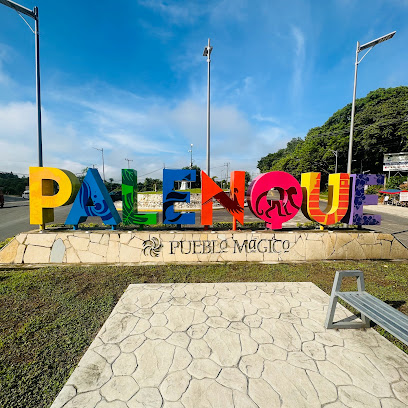
Palenque National Park
Explore the majestic ruins of Palenque National Park, a UNESCO World Heritage site, surrounded by the lush jungles of Chiapas, Mexico.
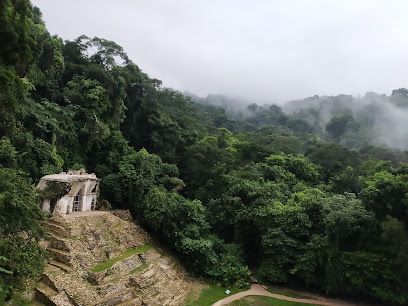
Chiapas Palenque
Explore the ancient Mayan ruins of Chiapas Palenque, a UNESCO World Heritage site teeming with history, culture, and natural beauty.
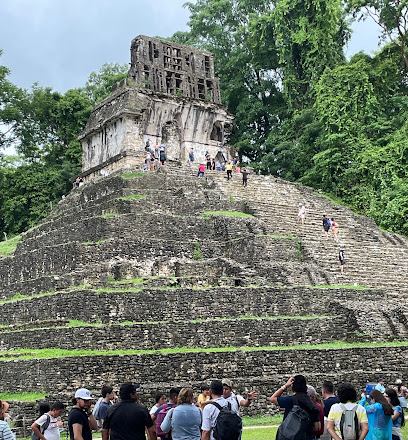
Essential places to dine
Las Tinajas
Discover authentic Mexican cuisine at Las Tinajas in Palenque—an unforgettable dining experience filled with local flavors.
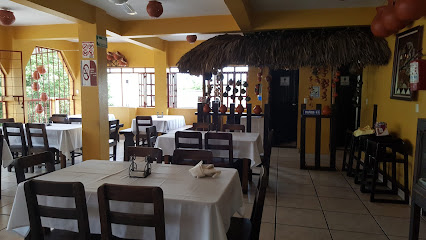
Restaurante Maya Cañada
Experience the rich flavors of traditional Mexican cuisine at Restaurante Maya Cañada in Palenque – a must-visit culinary destination.
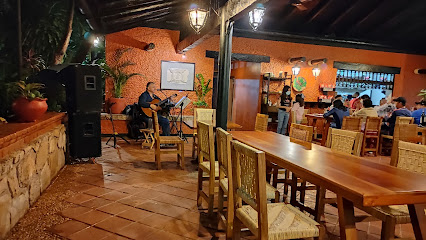
Monte Verde Trattoria Pizzeria
Experience authentic Italian cuisine at Monte Verde Trattoria Pizzeria near Palenque's stunning ruins.
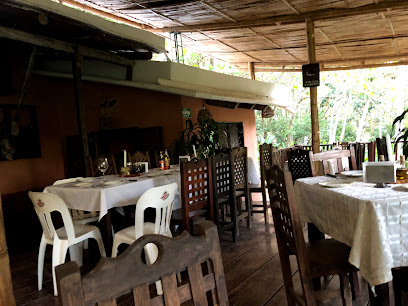
Restaurante Maya
Discover authentic Mexican cuisine at Restaurante Maya in Palenque - where tradition meets taste in every delicious bite.
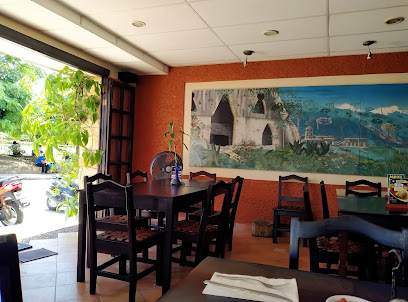
Restaurant Aluxes
Experience authentic Mexican grilled cuisine at Restaurant Aluxes in the heart of Palenque's vibrant Centro district.
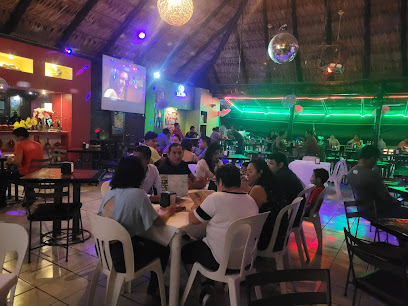
LA SELVA RESTAURANTE
Experience authentic Mexican cuisine at La Selva Restaurante in Palenque - where family-friendly dining meets delicious buffet delights.
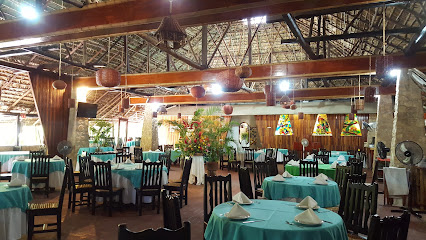
Casa Antoliana
Experience the vibrant flavors of Mexico at Casa Antoliana in Palenque—where traditional cuisine meets modern dining.
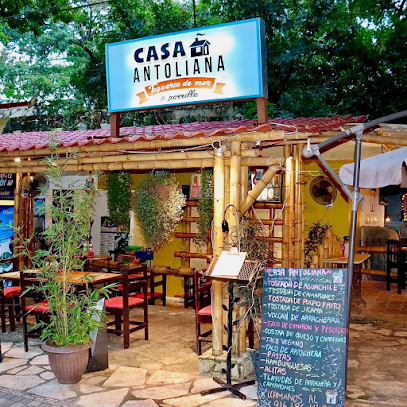
La Papita Vintage Palenque
Experience authentic Mexican cuisine in a vintage setting at La Papita Vintage Palenque, where every meal tells a story.
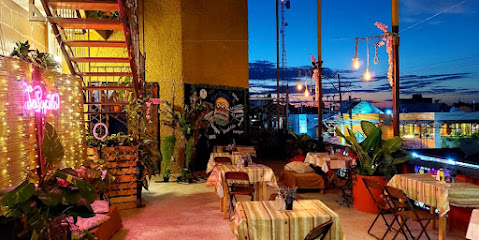
Restaurant La Escondida
Discover authentic Mexican flavors at Restaurant La Escondida in San Juan, Palenque—where every dish tells a story.
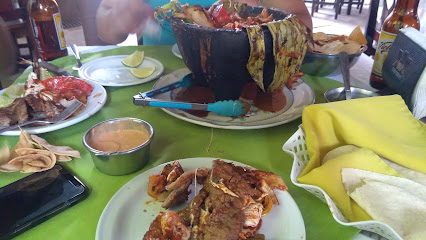
Restaurante Bambú
Experience authentic Mexican flavors at Restaurante Bambú in Palenque - where every meal is a celebration of local culinary traditions.
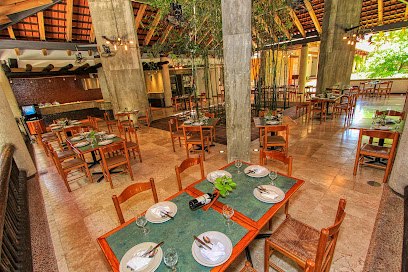
Markets, malls and hidden boutiques
Victorinox
Discover Victorinox in Palenque: Where Swiss Quality Meets Adventure in Every Purchase.
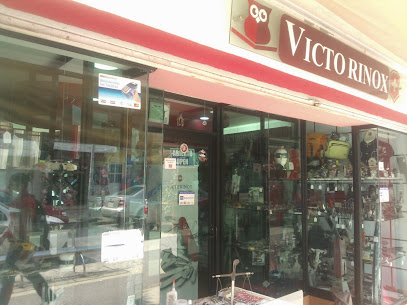
Jade SHOPPING
Experience the vibrant culture of Chiapas through unique clothing at Jade SHOPPING in Palenque, a destination for authentic local fashion.
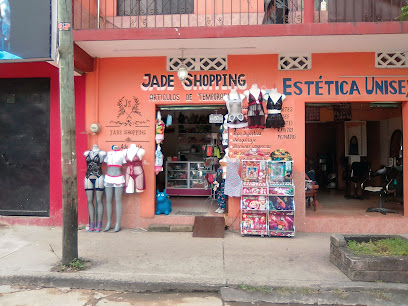
Julio César Boutique
Shop at Julio César Boutique for unique clothing that celebrates the culture of Chiapas, offering a blend of style and traditional craftsmanship.
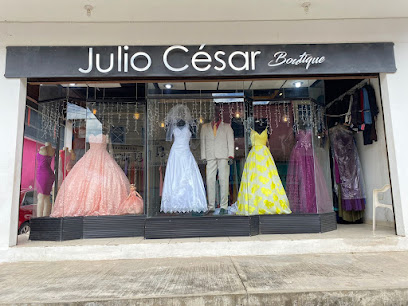
Boutique Sexi Or
Explore Boutique Sexi Or in Palenque for stylish clothing that blends modern fashion with local Chiapas culture.
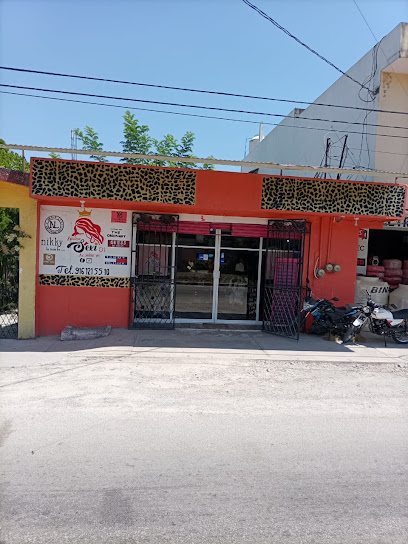
ROSSY BOUTIQUE- jade SHOPPING
Discover exquisite jade and authentic artisan crafts at Rossy Boutique in the heart of Palenque, Chiapas – a treasure for every traveler.
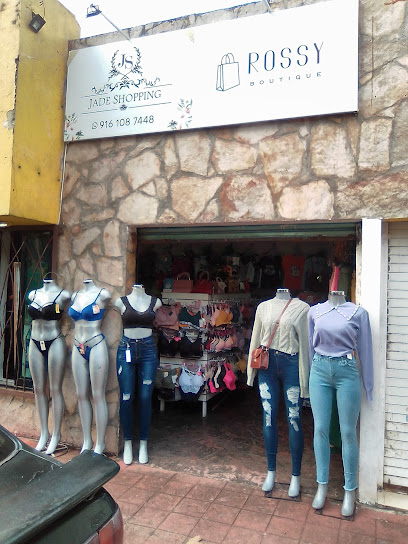
Yayis Boutique
Discover unique fashion at Yayis Boutique in Palenque - a charming store offering local styles and accessories for every traveler.
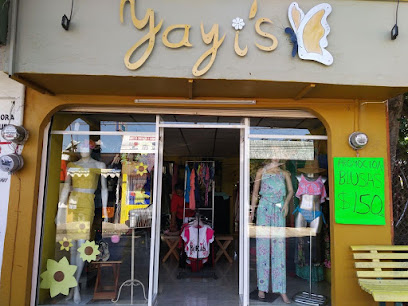
D'ROSSY NOVEDADES Y REGALOS
Explore D'ROSSY NOVEDADES Y REGALOS for unique gifts and souvenirs that embody the rich culture of Chiapas, perfect for every traveler.
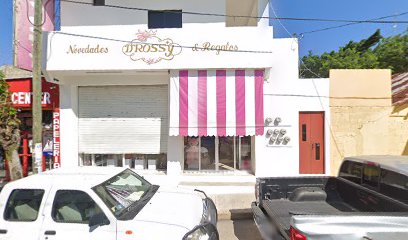
Michis Peluditos de Palenque
Explore the whimsical charm of Michis Peluditos de Palenque, a novelty store filled with unique gifts and local handicrafts in the heart of Chiapas.

Lovit
Explore Lovit in Palenque, your go-to gift shop for unique Chiapas souvenirs and handcrafted treasures that capture local culture.

GLOSS YM Boutique
Explore GLOSS YM Boutique in Palenque for unique clothing that reflects the vibrant culture of Chiapas and enhances your travel experience.

Essential bars & hidden hideouts
Restaurant Aluxes
Discover the culinary delights of Chiapas at Restaurant Aluxes, where the flavors of the region come alive in a vibrant grill atmosphere.
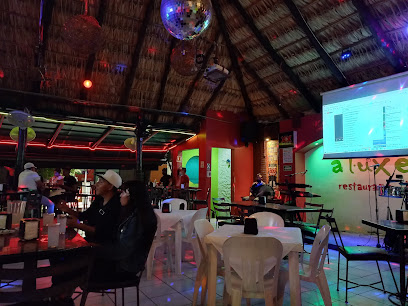
Bar Tentacion
Discover the vibrant nightlife of Palenque at Bar Tentacion, where refreshing cocktails and local culture create unforgettable evenings.
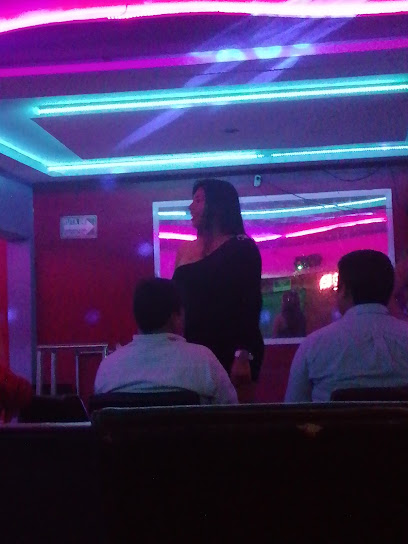
BAR DE CHENDO
Experience the vibrant nightlife of Palenque at Bar de Chendo, where local flavors and friendly vibes await you.
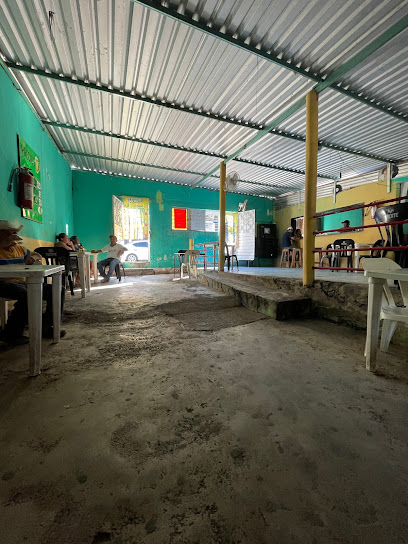
Michaledas la palenk-na
Experience the vibrant nightlife and local flavors at Michaledas la palenk-na, Palenque's must-visit bar for tourists.
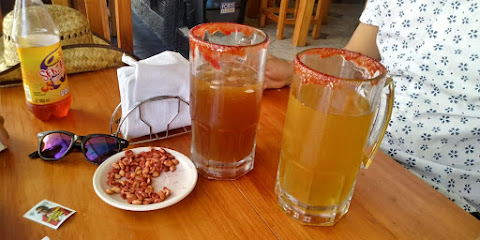
Fuego ámbar
Experience the vibrant nightlife at Fuego Ámbar in Palenque, where eclectic decor meets expertly crafted cocktails for an unforgettable evening.
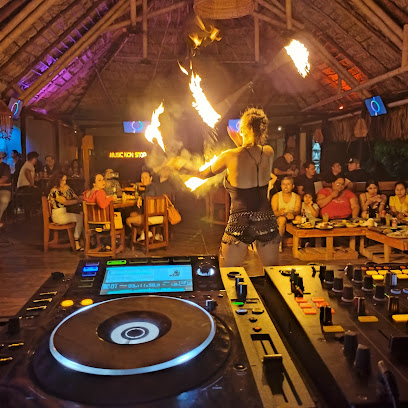
Bar La Oficina
Discover the vibrant ambiance of Bar La Oficina in Palenque, Chiapas – a local bar offering refreshing drinks and a welcoming atmosphere.
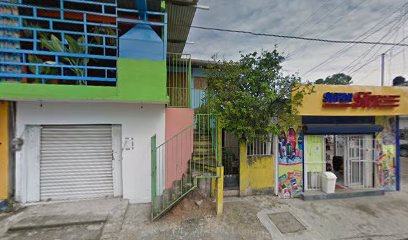
La Taberna
Experience the vibrant nightlife of Palenque at La Taberna, where local culture meets exciting cocktails and live music.
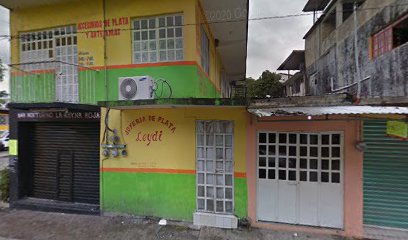
Bar La Botana
Experience the vibrant nightlife at Bar La Botana in San Jose, Palenque, where local culture meets friendly atmosphere and refreshing drinks.
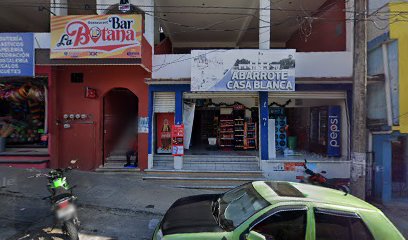
Bar La Matraca
Discover the lively spirit of Bar La Matraca in Palenque, where local nightlife meets vibrant culture in a welcoming atmosphere.
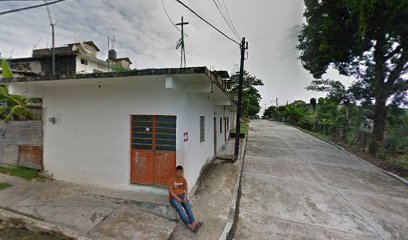
Bar ¨El Mirador¨
Experience the vibrant local culture and refreshing drinks at Bar El Mirador, a must-visit spot in the heart of Palenque, Chiapas.
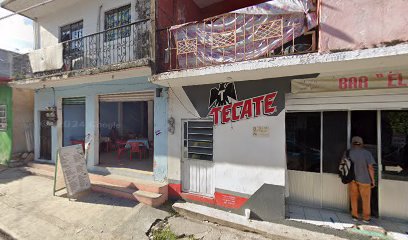
Local Phrases
-
- HelloKienixi
[kie-NEE-shee] - GoodbyeXhani
[HA-nee] - YesXhaw
[HAH-oo] - NoMai
[MY] - Please/You're welcomeAba
[AH-bah] - Thank youMuxas
[MOO-shahs] - Excuse me/SorryHini
[HEE-nee] - How are you?Kienixi nda?
[kie-NEE-shee ndah] - Fine. And you?Nda, nindia?
[ndah, neen-DEE-ah] - Do you speak English?Kienixi nxi ingles?
[kie-NEE-shee nee een-GLES] - I don't understandNxi mai muku
[nee MY MOO-koo]
- HelloKienixi
-
- I'd like to see the menu, pleaseKienixi nxi kuan menu, aba
[kie-NEE-shee nee kwan MEH-noo, AH-bah] - I don't eat meatMai nxi kuan kie
[MY nee kwan KYEH] - Cheers!Xha
[HAH] - I would like to pay, pleaseKienixi nxi sana, aba
[kie-NEE-shee nee SAH-nah, AH-bah]
- I'd like to see the menu, pleaseKienixi nxi kuan menu, aba
-
- Help!Nda!
[ndah] - Go away!Xhaw!
[HAH] - Call the Police!Kienixi nxi xhia polisia!
[kie-NEE-shee nee SHEE-ah poh-lee-SEE-ah] - Call a doctor!Kienixi nxi xhia mukua!
[kie-NEE-shee nee SHEE-ah moo-KWAH] - I'm lostNda nxi mai nkuke
[ndah nee MY n-KOO-keh] - I'm illNda nxi mai nda
[ndah nee MY ndah]
- Help!Nda!
-
- I'd like to buy...Kienixi nxi kun...
[kie-NEE-shee nee KOON] - I'm just lookingNda nxi kuan kieni
[ndah nee kwan KYEH-nee] - How much is it?Kienixi nxi kuan?
[kie-NEE-shee nee KYEHN] - That's too expensiveXhaw nxi mai kuan kieni
[HAH nee MY kwan KYEH-nee] - Can you lower the price?Kienixi nxi kuan kieni kuan?
[kie-NEE-shee nee KYEH-nee KYEHN]
- I'd like to buy...Kienixi nxi kun...
-
- What time is it?Kienixi nda nxi kuan?
[kie-NEE-shee ndah nee KYUAN] - It's one o'clockNguan o kuan
[ng-WAHN oh KYUAN] - Half past (10)Xhia kuandia (10)
[shee-ah KWAHN-dee-ah (DEE-es)] - MorningNguan
[ng-WAHN] - AfternoonKandia
[KAN-dee-ah] - EveningXhandia
[HAN-dee-ah] - YesterdayKuaxhia
[kwah-SHEE-ah] - TodayNguan
[ng-WAHN] - TomorrowKuaxhia
[kwah-SHEE-ah] - 1Nguan
[ng-WAHN] - 2Nguandia
[ng-WAHN-dee-ah] - 3Nguandiaxhia
[ng-WAHN-dee-ah-shee-ah] - 4Nguandiaxhia kuan
[ng-WAHN-dee-ah-shee-ah KYUAN] - 5Nguandiaxhia kuan kuan
[ng-WAHN-dee-ah-shee-ah KYUAN KYUAN] - 6Nguandiaxhia kuan kuan kuan
[ng-WAHN-dee-ah-shee-ah KYUAN KYUAN KYUAN] - 7Nguandiaxhia kuan kuan kuan kuan
[ng-WAHN-dee-ah-shee-ah KYUAN KYUAN KYUAN KYUAN] - 8Nguandiaxhia kuan kuan kuan kuan kuan
[ng-WAHN-dee-ah-shee-ah KYUAN KYUAN KYUAN KYUAN KYUAN] - 9Nguandiaxhia kuan kuan kuan kuan kuan kuan
[ng-WAHN-dee-ah-shee-ah KYUAN KYUAN KYUAN KYUAN KYUAN KYUAN] - 10Nguandiaxhia kuan kuan kuan kuan kuan kuan kuan
[ng-WAHN-dee-ah-shee-ah KYUAN KYUAN KYUAN KYUAN KYUAN KYUAN KYUAN]
- What time is it?Kienixi nda nxi kuan?
-
- Where's a/the...?Kienixi xhia...
[kie-NEE-shee SHEE-ah] - What's the address?Kienixi xhia nda?
[kie-NEE-shee SHEE-ah ndah] - Can you show me (on the map)?Kienixi nxi xhia nkuke (nxi map)?
[kie-NEE-shee nee SHEE-ah n-KOO-keh (nee map)] - When's the next (bus)?Kienixi xhia nxi kuan (bus)?
[kie-NEE-shee SHEE-ah nee KYUAN (boos)] - A ticket (to ....)Xhia kuan (ka ....)
[SHEE-ah KYUAN (kah)]
- Where's a/the...?Kienixi xhia...
History of Palenque
-
Palenque, known as 'Lakamha' in the ancient Maya language, was an important city-state during the Maya civilization, flourishing between 600 and 900 AD. This period saw the construction of grand temples and palaces, with the most notable being the Temple of the Inscriptions, which served as a tomb for the ruler Pakal the Great. The inscriptions found here provide invaluable insights into Maya history, religion, and governance.
-
After the collapse of the Maya civilization around the 10th century, Palenque was largely abandoned, and its ruins became overgrown by the jungle. The site remained largely unknown to the outside world until its rediscovery in the 18th century by explorers such as Juan Galindo, who brought attention to its remarkable architecture and inscriptions, sparking interest in Maya archaeology.
-
In the 19th and 20th centuries, significant archaeological work was undertaken at Palenque, notably by the Mexican archaeologist Alberto Ruz Lhuillier. His excavations unveiled many structures, including the Temple of the Inscriptions, and helped to preserve the site for future generations. Palenque was declared a UNESCO World Heritage Site in 1987, recognizing its cultural significance and the need for ongoing conservation efforts.
-
Today, Palenque is not only a key archaeological site but also a vibrant cultural hub that reflects the rich heritage of the Maya. The surrounding area is home to contemporary indigenous communities that maintain traditional practices and languages, contributing to the cultural tapestry of Chiapas. Festivals and events celebrate both ancient and modern Maya culture, drawing visitors from around the world.
-
Palenque has played a pivotal role in the field of Maya studies, influencing our understanding of ancient Maya society, politics, and art. The extensive hieroglyphic inscriptions found at the site have led to significant breakthroughs in deciphering the Maya script, allowing scholars to piece together the history of this fascinating civilization and its impact on the region.
Palenque Essentials
-
Palenque is accessible from several major cities in Chiapas. The nearest airport is Palenque Airport (PQM), with limited domestic flights. For those traveling from Tuxtla Gutierrez, a bus ride takes about 5 hours to reach Palenque. Buses from San Cristóbal de las Casas and Villahermosa also operate regularly and provide a scenic journey through the Chiapas landscape. Shared taxis (colectivos) are another option for a faster but slightly more expensive ride.
-
Palenque is a small town, making it convenient to explore on foot. Taxis are available for longer distances or to visit nearby attractions like the Palenque ruins and waterfalls. Colectivos also run frequently to surrounding areas and are a budget-friendly option. Bicycle rentals are offered at some local shops, providing an adventurous way to explore the town and its surroundings.
-
Palenque is generally safe for tourists, but standard caution is advisable. Avoid walking alone at night in poorly lit areas, particularly around the bus station. Petty crimes such as pickpocketing can occur in crowded places. It's wise to stay vigilant in the downtown area after dark. The outskirts of the town can be less safe; thus, stick to well-populated areas during your visit.
-
In emergencies, dial 911 for immediate assistance. Local hospitals and clinics are available, with the Hospital General de Palenque being the main facility. Always carry a copy of your passport and travel insurance details. Pharmacies are common, and many offer over-the-counter medications for minor ailments.
-
Fashion: Do wear lightweight, breathable clothing suitable for the warm climate. Avoid wearing overly revealing attire, especially in religious sites. Religion: Do respect local customs, and if visiting a church, ensure your shoulders and knees are covered. Public Transport: Do greet the driver upon entering a bus and offer your seat to the elderly. Don't play loud music or engage in disruptive behavior. Greetings: Do greet locals with a friendly 'Hola!' and a smile. Eating & Drinking: Do try local foods, and thank hosts for any meals offered. Don't waste food or express dissatisfaction openly, as it may offend.
-
To experience Palenque like a local, visit the local markets, such as the Mercado de Palenque, where you can sample fresh produce and traditional dishes. Engage with vendors, as they often share insights about the region's history and culture. Explore the lesser-known ruins and take guided tours to learn about the Mayan civilization. Don't miss the nearby waterfalls, such as Agua Azul and Misol-Ha, which are perfect for a day trip.
Trending Landmarks in Palenque
Nearby Cities to Palenque
-
Things To Do in Flores
-
Things To Do in Tikal
-
Things To Do in Campeche
-
Things To Do in Chichicastenango
-
Things To Do in Quetzaltenango
-
Things To Do in San Ignacio
-
Things To Do in Panajachel
-
Things To Do in Lake Atitlán
-
Things To Do in Antigua Guatemala
-
Things To Do in Guatemala City
-
Things To Do in Orange Walk Town
-
Things To Do in Punta Gorda
-
Things To Do in Rio Dulce
-
Things To Do in Livingston
-
Things To Do in Corozal Town













